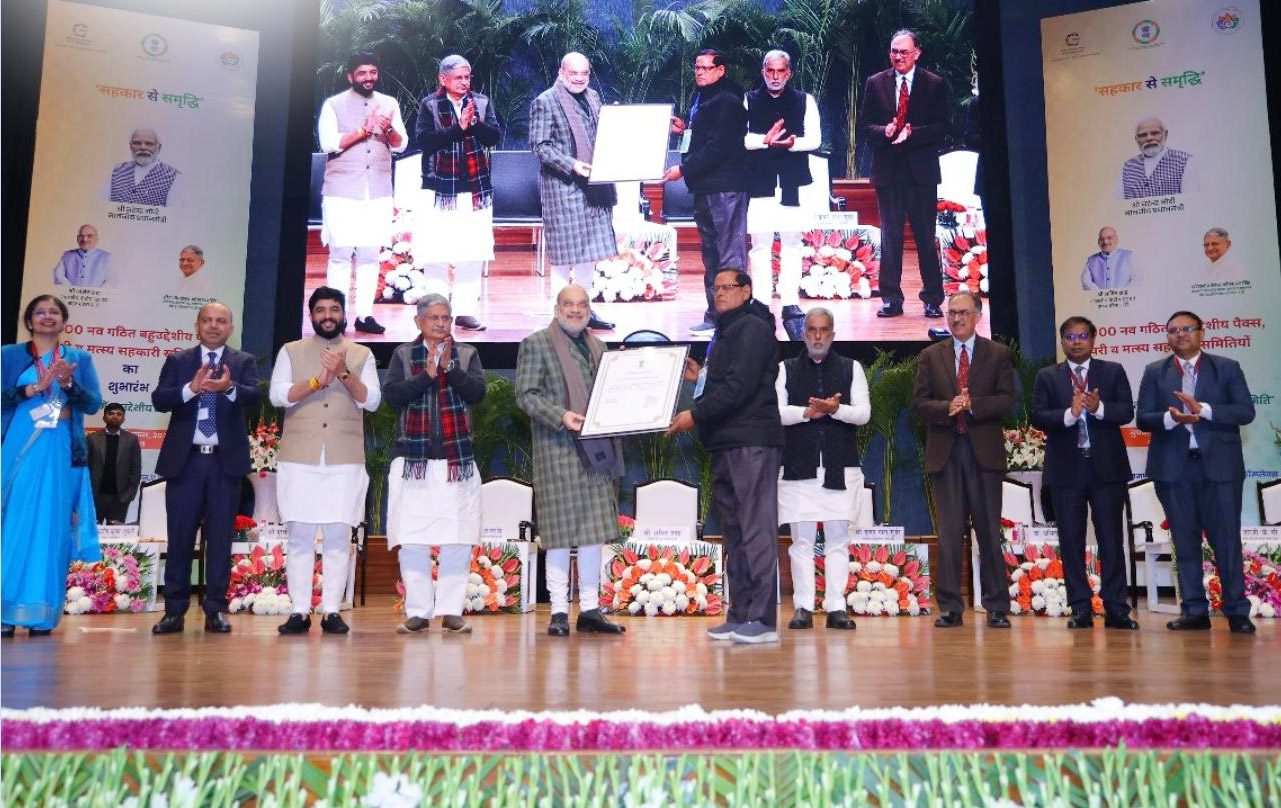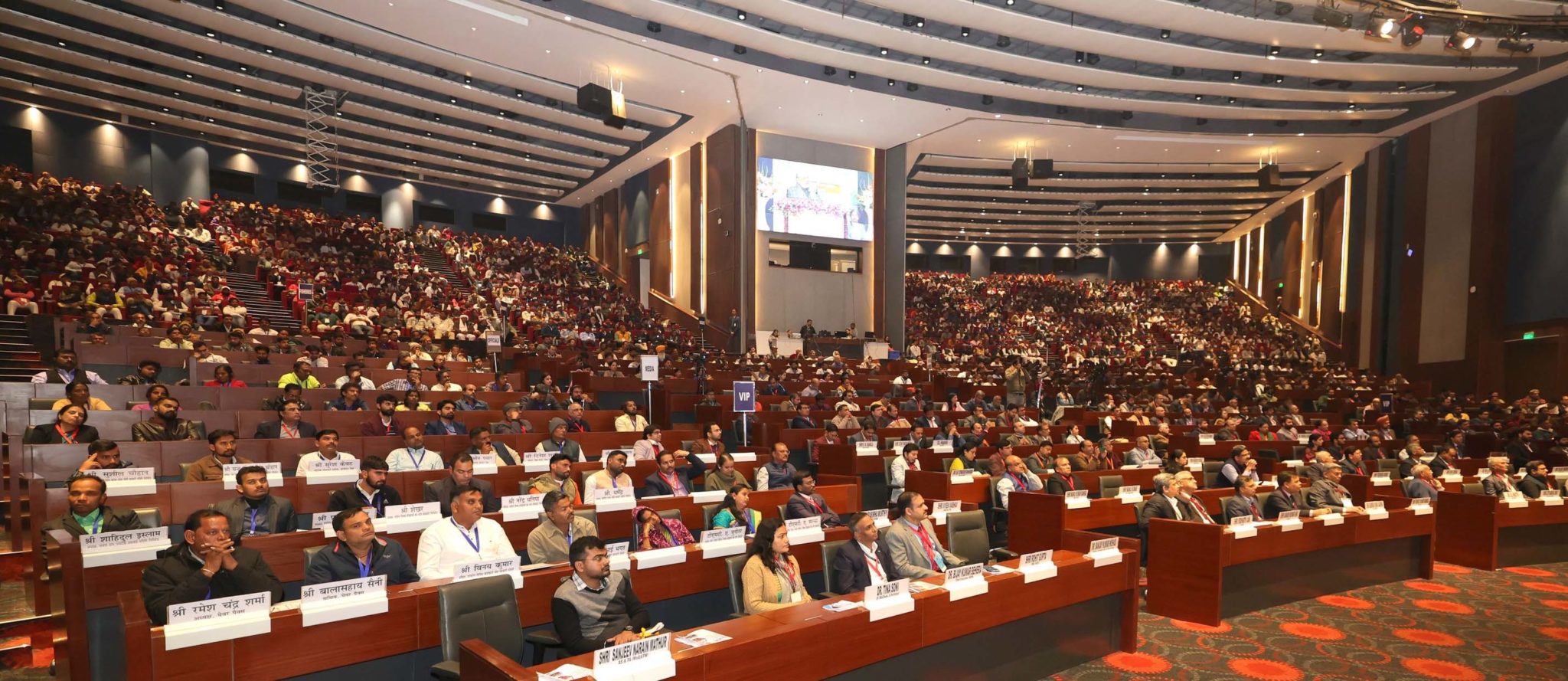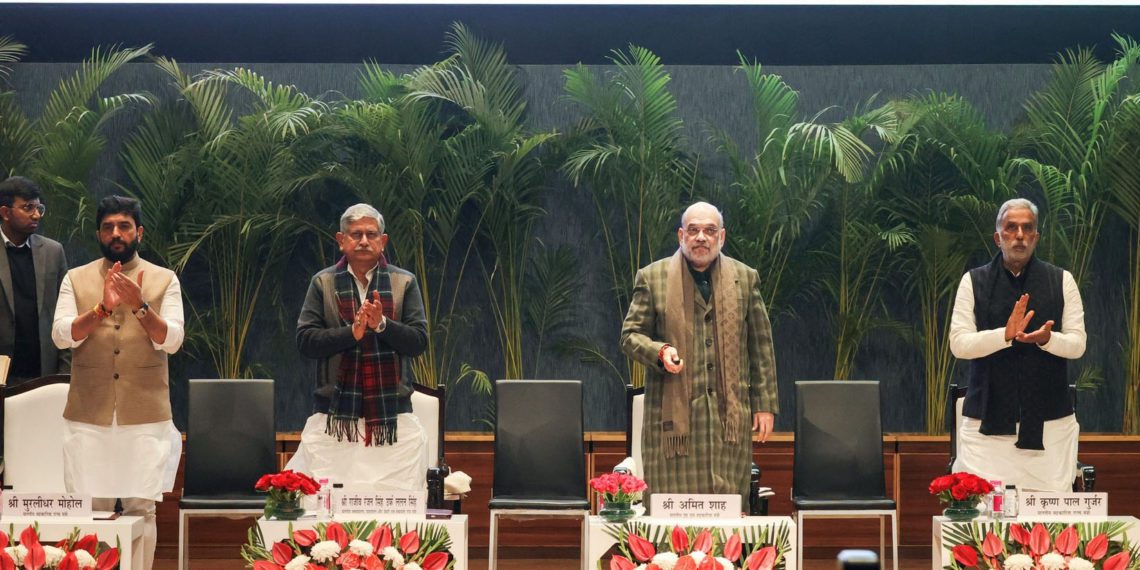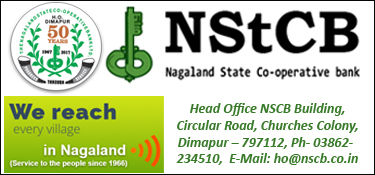Union Home Minister and Minister of Cooperation, Amit Shah, inaugurated 10,000 newly established Multipurpose Primary Agricultural Credit Societies (MPACS) alongside Dairy and Fisheries Cooperative Societies in New Delhi on Thursday.
Speaking on the occasion, Shah said the initiative marks a significant milestone in realizing Prime Minister Narendra Modi’s vision of “Sahkar Se Samriddhi” (Prosperity through Cooperation), which emphasizes the importance of cooperatives in every Panchayat to drive socio-economic progress. Shah highlighted that achieving this vision requires the presence of robust cooperative societies actively contributing to the development of rural communities.
The establishment of these 10,000 PACS was completed within just 86 days after the introduction of a Standard Operating Procedure (SOP) on September 19, 2024, showcasing the government’s commitment to swift and effective implementation, said Shah adding that the Modi government has set an ambitious target to establish 2 lakh new PACS within five year.
He said in the first phase, NABARD will form 22,750 PACS, followed by 47,250 in the second phase. NDDB will establish 56,500 new societies and strengthen 46,500 existing ones, while NFDB will create 6,000 new fisheries cooperatives and empower 5,500 existing ones.
State cooperative departments will also contribute by forming 25,000 PACS. To date, 11,695 new primary cooperative societies have been registered under the new model bylaws, marking significant progress toward the goal of 2 lakh PACS.


To modernize and enhance the efficiency of PACS, the government has prioritized computerization, which has significantly increased transparency and operational effectiveness. This modernization allows PACS to engage in 32 diverse activities, including storage, gas and fertilizer distribution, and water management. Additionally, the integration of technology has opened up new avenues for employment, particularly for women and youth, fostering economic empowerment at the grassroots level.
Shah stressed that skilled manpower is essential for managing these modernized societies, which led to the launch of a comprehensive training module for PACS members and employees. District cooperative registrars have been tasked with ensuring the effective implementation of this training program to enhance the capabilities of PACS secretaries and executive members.
At the event, Shah distributed RuPay Kisan Credit Cards and Micro-ATMs to 10 cooperative societies, symbolizing the government’s efforts to provide affordable finance to farmers and facilitate access to essential banking services in rural areas.
The government aims to transform Common Service Centres (CSCs) into PACS in villages, ensuring that every citizen benefits from their services. This transformation will also enhance the sustainability and vibrancy of PACS by involving them in activities like gas distribution, storage, and petrol distribution.
Shah highlighted the establishment of three new national-level cooperatives—NCOL, BBSSL, and NCEL—which will enable PACS to engage in organic farming, seed production, and exports. He said the adoption of new model bylaws has further strengthened inclusivity by encouraging the active participation of women, Dalits, backward communities, and tribals, fostering social harmony and empowerment.
Shah also paid tribute to Pandit Madan Mohan Malviya and Shri Atal Bihari Vajpayee on their birth anniversaries. Shah also acknowledged the death anniversary of Shri C. Rajagopalachari
The event was attended by several dignitaries, including Union Minister for Fisheries, Animal Husbandry, and Dairying Rajiv Ranjan Singh, Union Ministers of State for Cooperation Krishan Pal and Murlidhar Mohol, and senior officials from the Ministry of Cooperation.




















































